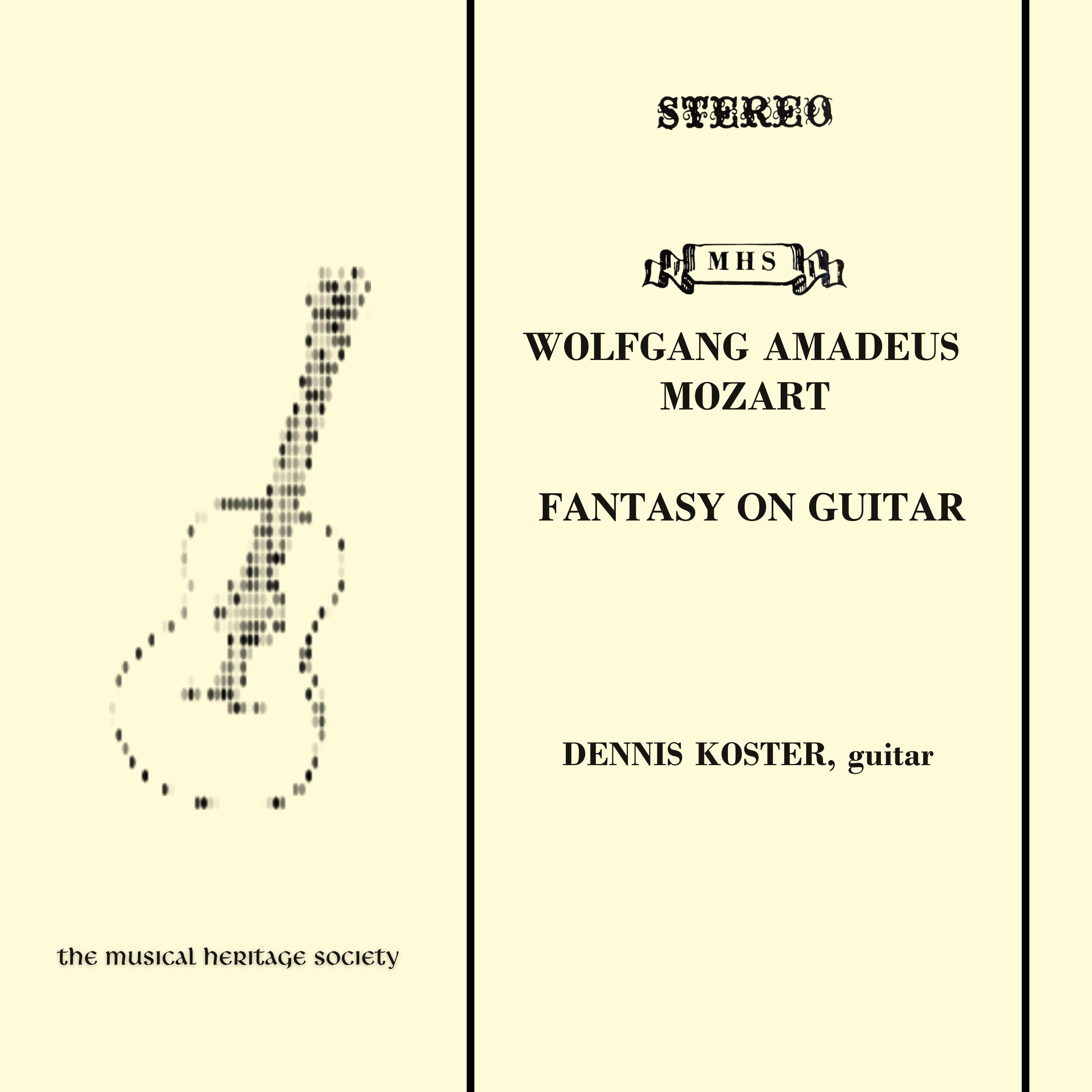

FANTASY ON GUITAR
ORIGINAL TRANSCRIPTIONS BY DENNIS KOSTER
1. WOLFGANG AMADEUS MOZART: Fantasy, K.397
LUDWIG VAN BEETHOVEN:
Piano Sonata No. 20 Op. 49 No. 2
2. Allegro, ma non troppo
3. Tempo di Menuetto
Piano Sonata No. 7, Op. 10, No. 3
4. Largo e mesto
4. ROBERT SCHUMANN: Arabesque Op. 18
JOHANNES BRAHMS:
5. Intermezzo Op. 118, No. 2
6. Romance Op. 118, No. 5
7. Intermezzo Op. 117, No. 2
DENNIS KOSTER: TWO CONCERT ETUDES AFTER BRAHMS
8. Arpeggio Study after Op. 116 No. 7
9. Tremolo Study after Op. 108
DENNIS KOSTER, Guitar
From a Letter to Breitkopf & Härtel, Vienna, July 13, 1802:
With respect to transcriptions and arrangements, I am now sincerely pleased that you refused them. The unnatural fury that possesses us to transplant even things written for the piano to stringed instruments, instruments so entirely opposed to each other, should certainly come to an end.
Ludwig Van Beethoven (To which I can only add I'm sorry)
GENIUS TRANSPLANTED
In terms of its acceptance and popularity, transcription - the practice of transplanting' a musical composition from its original instrumentation to a new instrument or ensemble-- has had a rather checkered history throughout the ages of music
Johann Sebastian Bach apparently loved hearing the same composition played on different instruments.
Often he would make different versions of the same piece for instruments as diverse as violin, lute and organ (accompanied by timpani and trumpets!) For his own pleasure he freely transcribed Vivaldi orchestral concertos to solo organ
In the letter to his publisher quoted above, Beethoven's ire is almost certainly directed against crassly abridged and over-simplified versions of piano
works, orchestral pieces and opera arias which were
very popular with musical amateurs - and very prof
itable for music publishers - at the turn of the 19th
century. Actually, Beethoven himself succumbed to
this 'unnatural fury' on many an occasion. He
transcribed his Piano Sonata, Op. 14 No. 1 for string
quartet ('instruments so entirely opposed to each
other') and composed a version of the Minuette from
Op 49 No 2 (played on this recording) for violin, viola,
cello, double bass, clarinet, horn and bassoon(!).

